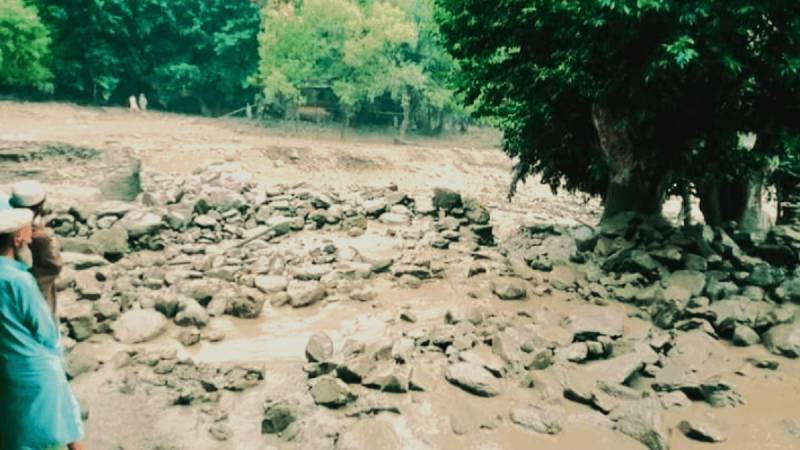
The profound impacts of climate change in Pakistan in the form of rising temperatures, intense drought, and catastrophic floods are well-documented. Scientists have noted with concern how the frequency and magnitude of these extreme climatic events will likely escalate in the coming years unless the necessary preventive measures are taken to mitigate them. While only a few areas of the country have been spared exposure to extreme weather events, it is the peripheral and remote regions of the country which have emerged at the forefront of facing the wrath of the torrential rains, rapidly melting glaciers, flash floods and glacial lake outburst floods (GLOF).
Chitral, a major tourist destination in Khyber Pakhtunkhwa, has witnessed an unprecedented surge in the frequency and intensity of torrential rains and floods this summer. The trail of destruction left by the floods has disrupted human life at various levels: the infrastructure has been annihilated, the local economy has ground to a halt, and the region has been pushed to the brink of an acute health and food crisis.
In the past ten days, every major tributary in Chitral has either flooded once or is in a constant state of flooding. Heavy floods have washed away the main highway at multiple locations, cutting off Chitral from the rest of the country. The power distribution lines, pipelines for drinking water, and major irrigation channels have also been washed away. Residents of flood-affected areas now lack access to clean drinking water, face a shortage of food, medicines and power supply, and may lose the produce of their standing crops and orchards due to prolonged shortage of water or flooding.
The floods have washed away many houses, with preliminary estimates suggesting that at least 63 families from Yarkhun, 44 from Rech, 22 from Golen and Mori, 20 from Shishi and Madaklasht, and six from Reshun, among others, have been rendered homeless. While the displaced families are not without shelter or food, thanks to the resilience and generosity of the community, they have been scarred for life after losing their valuables and homes to raging waters in a matter of minutes.
The recent floods, like those that preceded them in recent years, are likely to have long-lasting devastating impacts on the local economy of Chitral. Owing to the communication network breakdown, local businesses are struggling to stay afloat. Unless roads are restored and truck traffic can resume in the region, market shelves will quickly empty.
“Following the recent floods, the flow of tourists has plummeted by 60- 65%”
The hospitality industry has become a significant source of revenue for the residents of Chitral. According to the Associated Press of Pakistan, around 630,000 tourists visited Chitral in 2023. This figure was expected to rise this tourist season. However, the floods have adversely affected the flow of tourists to Chitral.
Ahmed Jan, a guest house owner in Mastuj, said the floods have scared away tourists. “Following the recent floods, the flow of tourists has plummeted by 60- 65%.” He urged the government to restore roads and other essential infrastructure and facilitate tourists.
In addition, the health impacts of floods should not be overlooked. Floods in Chitral heighten the risk of waterborne diseases such as diarrhoea, cholera, and typhoid, apart from raising other vector-borne diseases such as dengue and malaria. The long-term health impacts of floods are primarily financial and psychological. Research reveals that “flood victims are between 4-8.7 times at risk of suffering from long-term mental health problems compared to people who did not experience flooding”. It is likely that flood-affectees could develop psychological problems such as anxiety, depression, post-traumatic stress disorder (PTSD), and insomnia. The government must provide mental health support to the victims in disaster rehabilitation programmes.
It should be asserted that while climate change adversely impacts the whole of Pakistan, the remote and poor regions of the country are doubly vulnerable to the devastation. To mitigate the negative impact of floods, communities and the administrative machinery must take proactive rather than delayed and reactive measures. Many extreme weather events follow a certain pattern and timeline which can be reasonably predicted. The timely evacuation of vulnerable communities, setting up stocks of essential supplies at various spots, and monitoring of glacial melting patterns could help build resilience -- or at least faster reaction -- into disaster management practices.

